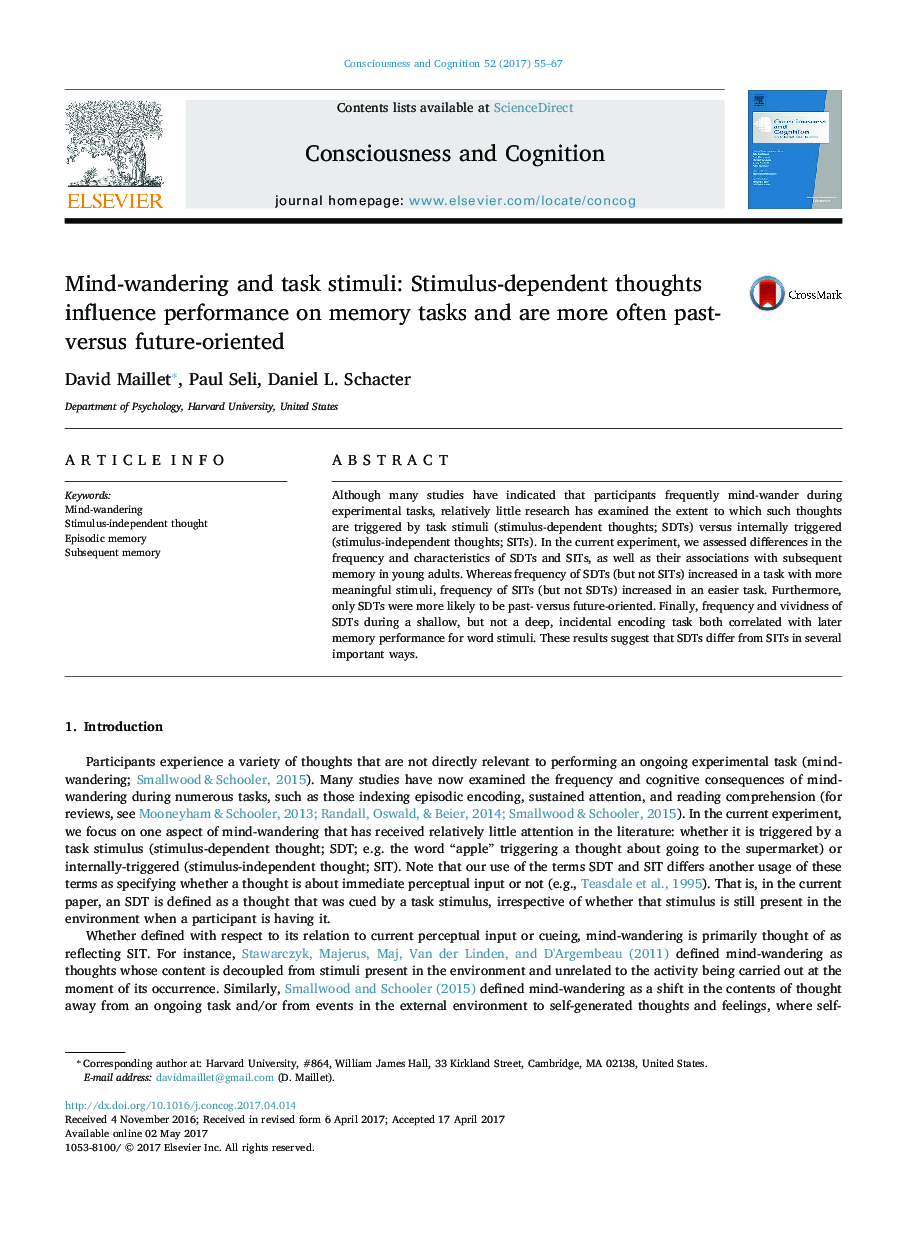| کد مقاله | کد نشریه | سال انتشار | مقاله انگلیسی | نسخه تمام متن |
|---|---|---|---|---|
| 5041767 | 1474159 | 2017 | 13 صفحه PDF | دانلود رایگان |
- Compared stimulus-independent and stimulus-dependent thoughts (SDTs and SITs).
- In a task with more meaningful stimuli, SDT frequency increased, SITs decreased.
- Only SDTs, but not SITs, are more past- versus future-oriented.
- Frequency and vividness of SDTs correlated with subsequent memory for words.
Although many studies have indicated that participants frequently mind-wander during experimental tasks, relatively little research has examined the extent to which such thoughts are triggered by task stimuli (stimulus-dependent thoughts; SDTs) versus internally triggered (stimulus-independent thoughts; SITs). In the current experiment, we assessed differences in the frequency and characteristics of SDTs and SITs, as well as their associations with subsequent memory in young adults. Whereas frequency of SDTs (but not SITs) increased in a task with more meaningful stimuli, frequency of SITs (but not SDTs) increased in an easier task. Furthermore, only SDTs were more likely to be past- versus future-oriented. Finally, frequency and vividness of SDTs during a shallow, but not a deep, incidental encoding task both correlated with later memory performance for word stimuli. These results suggest that SDTs differ from SITs in several important ways.
Journal: Consciousness and Cognition - Volume 52, July 2017, Pages 55-67
